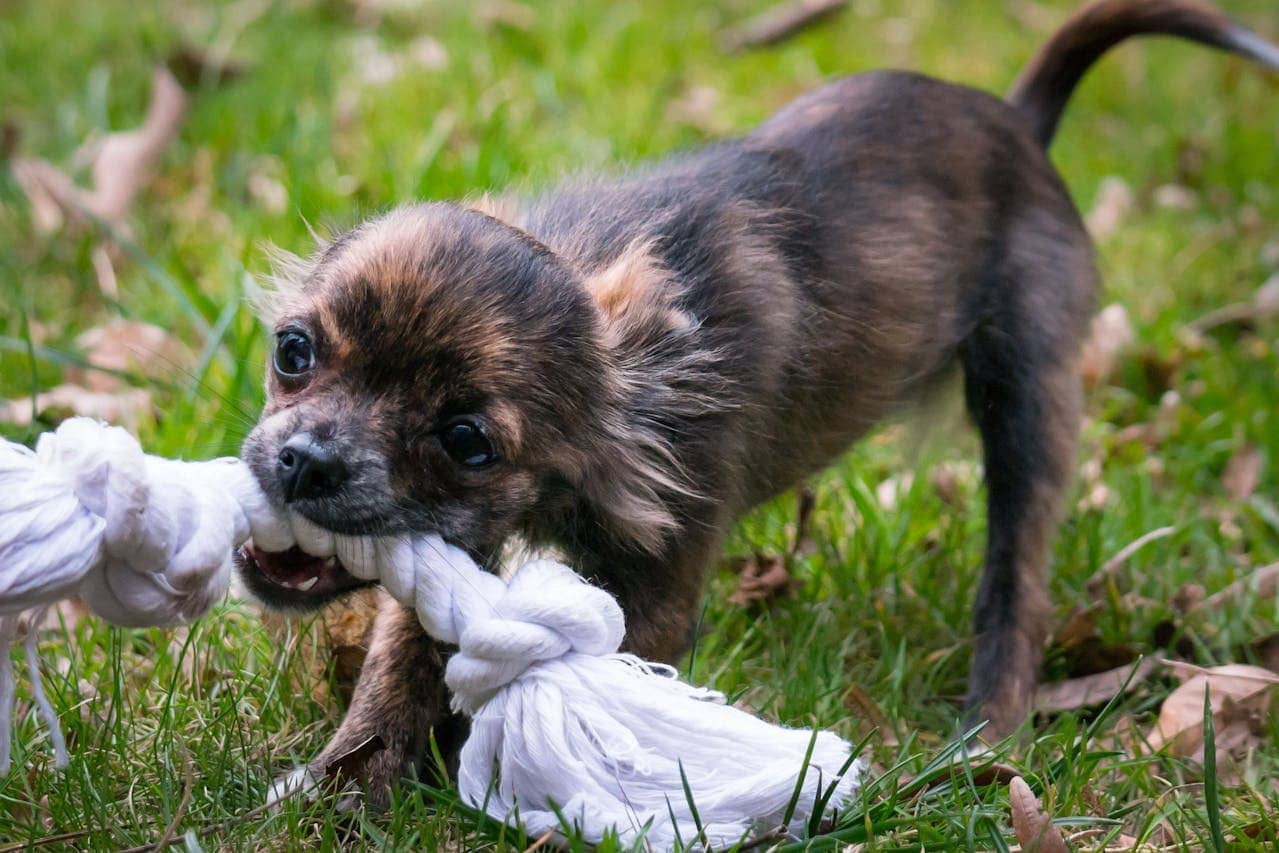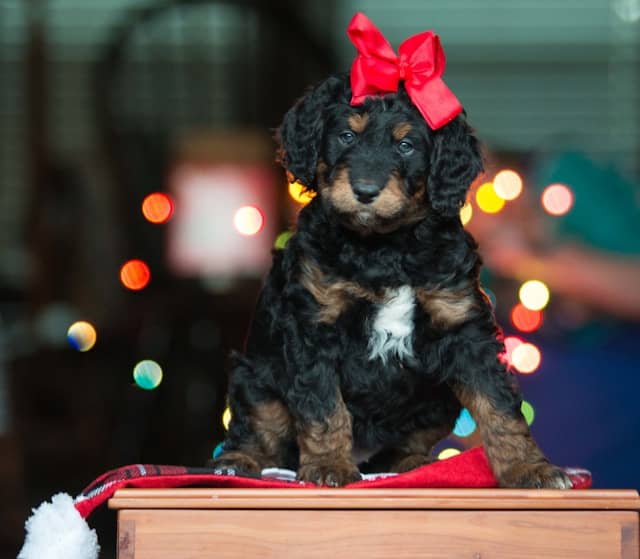
Puppy Training
Puppy Training in Charlotte, NC: A Complete Guide for New Dog Owners
Bringing home a new puppy is one of life’s most joyful experiences. But it’s also a big responsibility. Between the excitement and cuddles, you’ll face challenges like potty training, biting, chewing, and teaching your puppy how to behave. At Gruff Hound Academy in Charlotte, NC, we help local families turn their energetic puppies into confident, well-mannered dogs through positive, proven training methods.
In this guide, you’ll learn everything you need to know about puppy training—from where to start and how to prevent common mistakes to why early training sets your dog up for lifelong success.
Why Early Puppy Training Matters
Every behavior your puppy learns in their first few months shapes who they’ll become as an adult dog. Puppies are naturally curious and eager to please, but without structure, they can quickly develop bad habits like jumping, barking, or ignoring commands.
Starting puppy training early helps your dog:
- Build confidence in new situations
- Learn to focus and follow your direction
- Develop good manners around people and other dogs
- Feel calm and secure in different environments
Professional puppy training in Charlotte NC also helps new owners gain the skills and consistency needed to communicate clearly with their dogs.
When to Start Puppy Training Classes
Many dog owners wonder when it’s “too early” or “too late” to start. The truth is, training can begin the moment your puppy comes home—usually around 8 weeks old.
At this age, sessions are short and fun, focusing on building trust and teaching simple skills like:
- Name recognition
- Sit, come, and stay
- Handling and grooming tolerance
- Confidence around noises and people
Formal puppy training classes can begin as soon as your pup has their final rounds of vaccinations. At Gruff Hound Academy, our classes are designed with gentle progression into beginner obedience.
How to Train a Puppy Not to Bite or Nip
Biting is one of the most common puppy behaviors—and one of the most misunderstood. Puppies explore the world with their mouths, and gentle mouthing is normal during play. However, consistent biting can lead to problems if not corrected early.
Here’s what you can do:
- Redirect: Offer a chew toy the moment your puppy mouths your hand.
- Pause Play: If biting continues, calmly stand up and stop playing for 20 seconds. This teaches that biting ends fun.
- Reward Gentle Behavior: Praise and treat when your puppy licks or plays gently.
Avoid yelling or punishment—these approaches can cause fear or confusion. Positive reinforcement helps your puppy learn faster and trust you more deeply.
Potty Training Tips That Actually Work
Potty training takes patience and consistency. Accidents will happen, but your puppy will learn quickly if you stick to a routine. Here’s a simple plan used in our Charlotte puppy training programs:
- Frequent Breaks: Take your puppy outside every 1–2 hours, plus after meals, naps, or play.
- Use a Cue: Choose a phrase like “go potty” so they connect the words with the action.
- Praise Immediately: Reward with treats and excitement within 2 seconds of success.
- Supervise Indoors: Use baby gates or a crate to prevent roaming until fully trained.
Never scold a puppy for an accident—it only delays learning. Instead, focus on preventing mistakes and rewarding good timing.
Crate Training a Puppy the Right Way
A crate isn’t a punishment tool—it’s your puppy’s personal den. When introduced properly, a crate helps with potty training, keeps your dog safe, and gives them a place to relax.
Follow these steps:
- Start Slowly: Leave the crate open with a soft blanket and treats inside.
- Feed Inside: Let your puppy eat meals in the crate to create a positive association.
- Short Stays: Begin with 5–10 minute sessions while you’re nearby, gradually increasing the time.
If your puppy cries in the crate, wait until they’re calm before letting them out. This teaches patience and independence.
The Importance of Socialization
Socializing your puppy at 16 weeks is critical for preventing fear-based behaviors later on. Positive exposure helps your puppy feel comfortable around new people, pets, and environments.
In our our classes, socialization includes:
- Meeting other puppies and owners in a controlled setting
- Experiencing sounds like traffic and public spaces
- Handling exercises
- Playtime under trainer supervision
Well-socialized dogs are calmer, friendlier, and more adaptable in new situations.
Positive Reinforcement: The Key to Success
At Gruff Hound Academy, we believe in positive reinforcement—a science-backed training method that rewards desired behavior instead of punishing mistakes. This approach builds trust, strengthens your bond, and makes learning enjoyable for both you and your puppy.
Examples include:
- Using treats, toys, or praise to reward correct behavior
- Ignoring unwanted behavior instead of scolding
- Setting your puppy up for success by preventing triggers
Dogs trained through positive reinforcement are more confident and reliable because they learn what’s expected through encouragement, not fear.
Choosing the Best Puppy Training in Charlotte, NC
When searching for the best puppy training in Charlotte, look for these signs of a quality program:
- Certified, experienced trainers
- Small or private class sizes for personal attention
- Positive, science-based methods
- Ongoing support for owners
- A clean, safe training environment
Gruff Hound Academy offers all of the above, plus a community of local dog owners who care as much as you do. Whether you choose private lessons or group puppy classes, our goal is to help you raise a happy, well-behaved companion you’ll enjoy for years.
How to Get Started with Puppy Training
If your puppy is ready to learn, you can start today. Here’s how:
- Visit Gruff Hound Academy to explore our puppy programs.
- Sign up for a Puppy obedience classes in Charlotte NC to meet our certified trainers.
- Bring your puppy for an evaluation and first session.
Early training builds trust and communication that lasts a lifetime. The sooner you start, the easier it is for your puppy to learn and grow into a calm, confident adult dog.
Ready to begin?
Book your first puppy training session today at Gruff Hound Academy and give your pup the best start possible.

